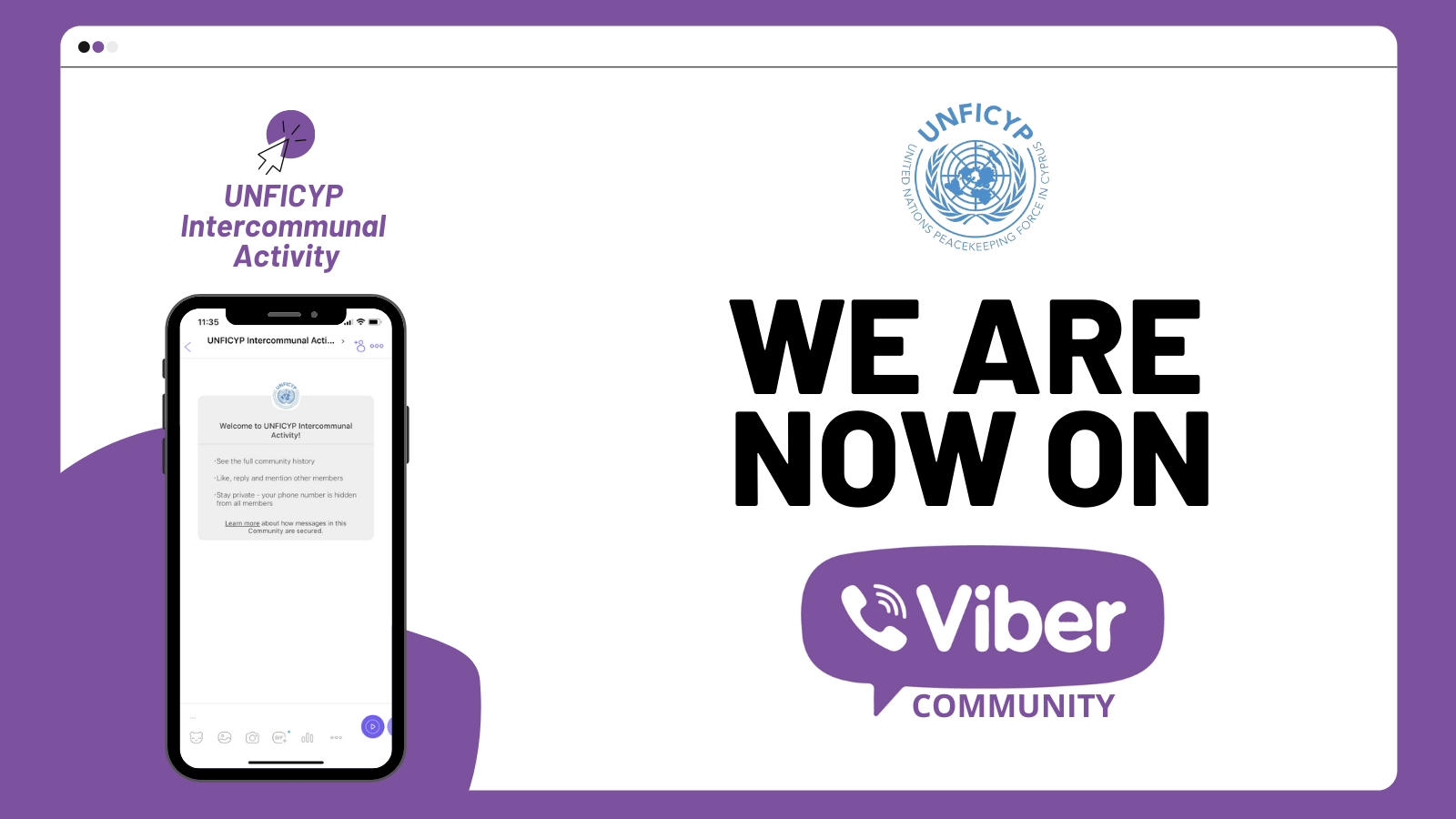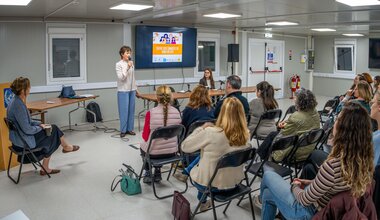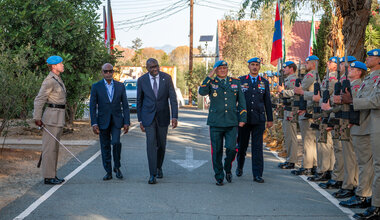SRSG Spehar talks about highlights of 2020
In October 2020, UNFICYP launched the first edition of Outloud, the Mission’s podcast to talk about its mandate as well as its initiatives on the island. In the December edition, we featured an interview with the Special Representative of the Secretary-General and Head of Mission on the island, Elizabeth Spehar, in a review of the challenges and highlights of 2020 and the future of the Mission and the Cyprus talks.
As the top UN official on the island, can you please tell us about the work of the Mission and the stage of the Cyprus talks?
2020 has been a challenging year for us in Cyprus and for the entire world because of the COVID-19 pandemic, which has made things much more difficult than what we will be normally facing, but both missions in Cyprus have been continuing to fulfill their mandate.
In terms of UNFICYP, in 2020 we continue to do our job in liaising and engaging with people from across the divide and with the opposing forces from across the divide to make sure everything remains calm and stable in and around the buffer zone, we also have been helping people across the divide come together for trust-building.
In terms of Good Offices, we continued to stay in touch with all the stakeholders in the hopes that we can help the parties to the Cyprus problem get back to the negotiating table, because in answer to your question about the Cyprus Talks, sadly we had no have negotiations now for about two and half years.
With the Corona crisis continuing, how did the Mission manage to implement its mandate?
In light of COVID-19, we had to make a lot of changes we had to adapt, so both missions put very strict procedures in place to keep our personnel safe against COVID-19 and also to guard against any spreading of the pandemic from our mission to the wider population.
For example, putting in place alternative working arrangements, social distancing, mask wearing at all times, anyone coming in from abroad had to go through 14 days of quarantine before coming to our missions and we also adapted technologically, much of the work that we try to do to liaise and engage with both sides to solve problems or to build trust between the communities, we moved to do a lot of that work, as much as possible, virtually.
Despite the challenges, what were the achievements?
One of the major achievements was to continue to keep the buffer zone calm and stable, to prevent incidents and from raising tensions to spark into a greater dispute, I think that is an important achievement. We also, in this context of COVID-19, facilitated a lot of cooperation on humanitarian bases that happened across the divide, such as certain people in the south of the island that needed to cross north, people living in the north needed to go for medical treatment to the south.
We were often called to facilitate these sorts of things. And then finally, I would call an achievement the fact that we have been able to continue to support civil society organizations to reach across the divide to continue to cooperate with each other to build trust. We have managed to support a number of networking events and we have one particularly successful activity in 2020 and that was launching our Youth Champions for the Environment and Peace initiative.
Early in the year, before the COVID-19 pandemic, we selected 24 Youth Champions from both communities, who are very passionate about the environment and who also have a vocation for peace.
We worked with them throughout the year, we did a number of training sessions for them on environmental peace building, they graduated in the fall and we were able to virtually give them their graduation certificates on UN Day on 24 October.
These young people have been doing a great job, staying connected and working on a number of awareness raisings campaigns on key issues related to preserving the environment on the island. One of the important premises of this initiative for the environment, is the fact that there is no way that you can implement it just on one or another side of the island. The environment has no limits or boundaries and therefore, it is very important that young people realized that if they are invested in the environment and in the future of their island, they will really need to work together, and it is being quite successful so far.
How do you see the future of the Mission and the Cyprus talks?
I would say first of all for UNFICYP, the peacekeeping mission, we intend to continue to play our role in ensuring that things remain calm and stable in and around the buffer zone and also that we continue to help create the proper conditions for successful negotiations to the settlement of the Cyprus problem. So that means not only keeping things stable but also working to bring Cypriots together.
In terms of the Good Offices, they are ready to play a role if and when, and I do hope that it is when, the parties will be ready to resume the Cyprus Talks. I do have a concern that the longer that we do not have talks, the more challenging a return to successful negotiations will become. As the Secretary-General has often said in his reports about Cyprus, “time is not on the side of a solution”, so I really hope that 2021 will be the year of the solution and we will be ready to support that.
To listen to the previous editions, visit: https://soundcloud.com/user-323635215/tracks
 UN
UN United Nations Peacekeeping
United Nations Peacekeeping






